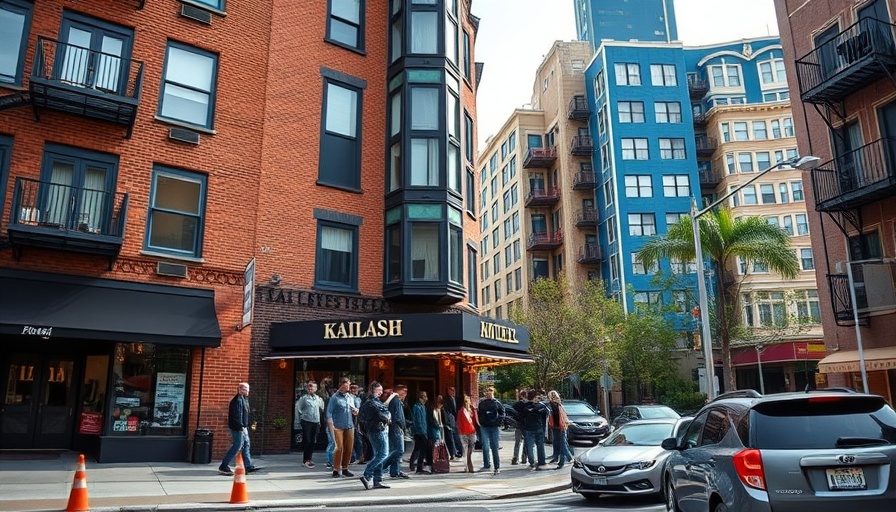
Unpacking the Controversial Kailash Hotel Situation
The Kailash Hotel, located at the intersection of 16th and Mission Streets, has emerged as a focal point for community concerns in San Francisco, due to the activities and conditions that have plagued this 27-unit single room occupancy hotel. The hotel owners, Nick and Alpesh Patel, are now proposing to either sell or lease the property to the city, a move they believe could lead to a renewed focus on better management and improved living conditions for residents.
Historical Context: A Mixed Reputation
Since its inception, the Kailash Hotel has walked a fine line between being a source of affordable housing and a hotspot for criminal activity. Former supervisor Tom Ammiano recalls the hotel having a troubled reputation even in the early 2000s. "There are good people who work there, but the conditions are deplorable," Ammiano noted, reflecting a sentiment echoed by many neighborhood residents. The complaints range from room maintenance issues to public drug use, causing friction between residents and hotel guests.
Local Perspectives: Voices of the Neighborhood
Community members like Conrad Grass, who owns a nearby apartment complex, voice their frustrations about the negative impact the hotel has had on their quality of life. Describing daily clean-up duties from trash and needles that end up on the grounds, Grass paints a vivid picture of the challenges faced. The hotel’s management, however, has tried to paint a more compassionate picture, with Nick Patel claiming they facilitate access to sanitation facilities for unhoused individuals, thus making them a part of the community equation.
Potential Outcomes: What’s at Stake?
The discussions between the Patels and city officials shine a light on the critical question of what happens next for the Kailash Hotel. If the city takes over, it could mean an overhaul of the property management and services provided, potentially improving safety and living conditions for occupants. Neighbors, while skeptical, hold out hope that city intervention could indeed lead to a safer, more hygienic environment.
Future Predictions: What the City Could Do Differently
Considering the city’s commitment to increasing its bed capacity for the unhoused, the Kailash could become an improved site for transitional housing. The Bay Area has seen a series of city-led initiatives aimed at tackling homelessness through better resource allocation and housing plans. A potential city takeover might focus on integrating supportive services aimed at not just keeping the premises clean but enhancing the overall living experience for its residents.
Understanding Community Needs: More Than Just Housing
The narrative surrounding the Kailash Hotel encapsulates broader concerns regarding housing policies in San Francisco. It raises pivotal questions about the interplay between public safety, local governance, and community satisfaction. The local government’s involvement could signal a shift towards a more proactive approach in understanding and catering to community needs, particularly as they relate to public safety and hygiene.
A Call for Accountability: What Residents Can Do
As the city deliberates on the future of the Kailash Hotel, residents have the power to hold their elected officials accountable. Participating in city council meetings, advocating for community-led initiatives, and voicing concerns through public forums can ensure that the solutions crafted are not just top-down but genuinely reflect the needs of the community.
The Kailash Hotel situation is one that demands urgent attention, and as community members, it is crucial to engage with local governance actively. Join the conversation, share your thoughts, and help shape a future that fosters safety, hygiene, and quality living in our neighborhoods.
 Add Row
Add Row  Add
Add 




 Add Row
Add Row  Add
Add 

Write A Comment